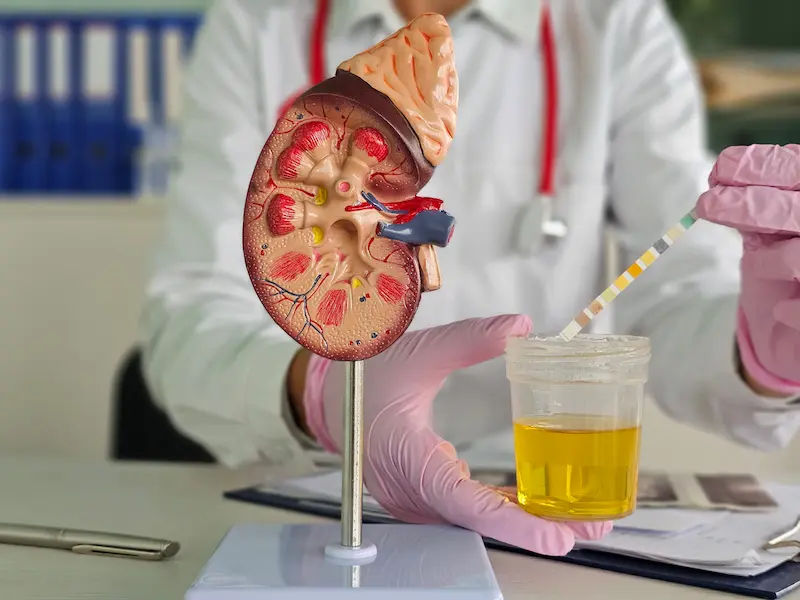Types of Diagnostic Tests Explained
Confused about diagnostic tests? Learn the types of medical tests—blood, imaging, biopsy, and more—what they detect, how they're done, and when to book one.

Written by Dr. D Bhanu Prakash
Reviewed by Dr. Rohinipriyanka Pondugula MBBS
Last updated on 19th Aug, 2025
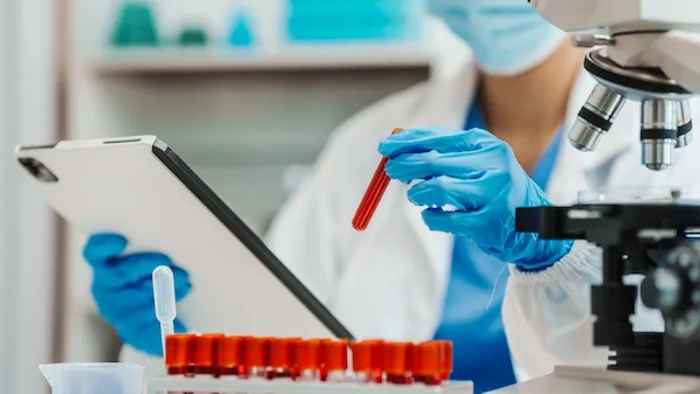
Introduction
When you’re feeling unwell, doctors often recommend diagnostic tests to understand what’s happening inside your body. These tests help identify diseases, monitor health conditions, and guide treatment plans. However, medical tests can sometimes seem confusing or overwhelming. This article explains the common types of diagnostic tests in simple terms, helping you understand their purpose and what to expect.
Why Are Diagnostic Tests Important?
Diagnostic tests play a crucial role in healthcare by:
- Detecting diseases early, even before symptoms appear.
- Confirming or ruling out a suspected condition.
- Monitoring chronic illnesses like diabetes or heart disease.
- Guiding doctors in choosing the right treatment.
Consult Top Doctors for Personalised Health Advice
Now, let’s explore the different types of diagnostic tests.
1. Blood Tests
Blood tests are among the most common diagnostic tools. A small sample of your blood is taken and analysed in a lab to check for various health issues.
Common Types of Blood Tests:
Here are some examples of blood tests your doctor might suggest:
- Complete Blood Count (CBC): Checks red blood cells, white blood cells, and platelets to detect infections, anaemia, or immune disorders.
- Blood Glucose Test: Measures sugar levels to diagnose diabetes.
- Lipid Profile: Assesses cholesterol and triglycerides to evaluate heart disease risk.
- Liver & Kidney Function Tests: Detects liver or kidney damage.
- Thyroid Function Test: Checks thyroid hormone levels.
What to Expect:
A small needle is used to draw blood, usually from your arm. The process is quick and may involve only minimal discomfort.
Get Your Health Assessed
2. Imaging Tests
These tests create pictures of the inside of your body to detect abnormalities.
Common Imaging Tests:
Depending on your symptoms, your doctor may recommend:
- X-rays: Used for broken bones, lung infections, or dental issues.
- Ultrasound: Uses sound waves to examine internal organs such as the abdomen.
- CT Scan (Computed Tomography): Provides detailed cross-sectional images of organs, bones, or blood vessels.
- MRI (Magnetic Resonance Imaging): Uses magnets and radio waves for detailed images of soft tissues like the brain or muscles.
- PET Scan: Helps detect cancer or brain disorders by tracking radioactive tracers.
What to Expect:
These tests are usually non-invasive and painless. Some imaging tests, like an MRI, may require you to remain still in a machine for a short period.
3. Urine Tests
Urine tests help detect infections, kidney problems, diabetes, or drug use.
Common Urine Tests:
You might be asked to undergo one of the following:
- Urinalysis: Checks for infections, protein, or sugar in urine.
- 24-Hour Urine Collection: Measures kidney function or hormone levels.
What to Expect:
You will be asked to provide a fresh urine sample in a sterile container. The test itself does not involve any physical discomfort.
Get Your Health Assessed
4. Stool Tests
These tests analyse stool samples to detect digestive disorders, infections, or colon cancer.
Common Stool Tests:
If you have digestive symptoms, your doctor might recommend:
- Faecal Occult Blood Test (FOBT): Checks for hidden blood, which is a possible sign of colon cancer.
- Stool Culture: Detects bacterial or parasitic infections.
What to Expect:
You will need to collect a small stool sample at home and send it to a laboratory for analysis.
5. Biopsy
A biopsy involves taking a small tissue sample to check for cancer or other diseases.
Types of Biopsies:
Depending on the area of concern, your doctor may suggest one of the following:
- Needle Biopsy: Uses a thin needle to extract tissue from organs such as the liver.
- Endoscopic Biopsy: A tiny camera-guided tool collects tissue for a stomach or lung biopsy.
- Surgical Biopsy: A small piece of tissue is removed during surgery for detailed analysis.
What to Expect:
The procedure is usually done under local anaesthesia to minimise discomfort. Recovery will depend on the type and location of the biopsy.
6. Electrocardiogram (ECG/EKG)
An ECG records your heart’s electrical activity to detect irregular heartbeats, heart attacks, or other cardiac issues.
What to Expect:
Electrodes are placed on the chest, arms, and legs. The test is quick, safe, and painless.
7. Endoscopy & Colonoscopy
These tests use a flexible tube with a camera to examine the digestive tract. They allow direct visualisation of the gastrointestinal tract, helping identify inflammation, ulcers, or polyps.
- Endoscopy: Checks the oesophagus, stomach, or small intestine.
- Colonoscopy: Examines the colon for polyps or cancer.
What to Expect:
You will receive sedation to ensure comfort. The procedure is generally well tolerated and lasts a short time.
Tips for Managing Diagnostic Tests
Here are a few practical suggestions that might help before or during your test:
1. Follow Doctor’s Instructions: Some tests require fasting or stopping certain medications.
2. Stay Hydrated: Helps with blood and urine tests.
3. Ask Questions: If unsure, clarify with your doctor.
4. Relax: Most tests are quick and painless.
When to Book a Diagnostic Test?
If your doctor recommends a test, don’t delay—early detection saves lives. You can easily book lab tests or imaging scans through Apollo 24|7 for a hassle-free experience.
Final Thoughts
Diagnostic tests play a vital role in understanding and managing your health. By learning more about how these tests work and what they involve, you can feel more confident and better prepared. If you have any concerns about a test, speak with your doctor for guidance tailored to your health needs.
Consult Top General Physicians
Consult Top General Physicians

Dr. Jawwad Mohammed Kaleem
General Practitioner
4 Years • MBBS
Hyderabad
Apollo 24|7 Clinic, Hyderabad

Dr. Mohammed Kamran
General Practitioner
5 Years • MBBS, FIDM
Nashik
Apollo 24|7 Clinic - Maharashtra, Nashik
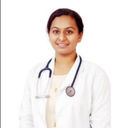
Dr. Chaithra H
General Physician/ Internal Medicine Specialist
6 Years • MBBS, MD General Medicine, DNB General Medicine
Bangalore
Apollo 24|7 Clinic - Karnataka, Bangalore
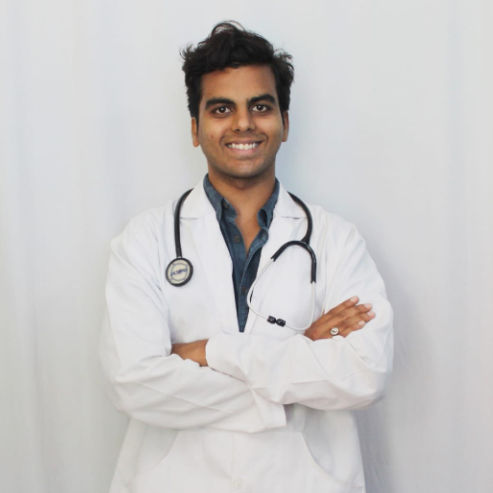
Dr D M Karthik
General Practitioner
4 Years • MBBS, Fellowship in Diabetes Mellitus, Advance certificate in Diabetes Mellitus, Derma Nutrition Certification
Visakhapatnam
Apollo 24|7 Clinic - Andhra Pradesh, Visakhapatnam
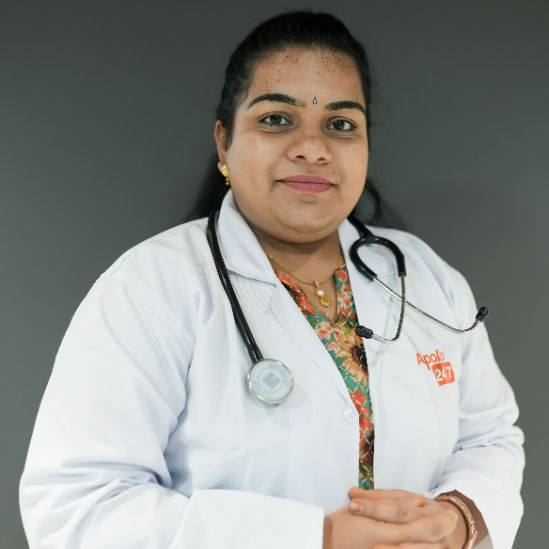
Dr. Siri Nallapu
General Practitioner
5 Years • MBBS
Hyderabad
Apollo 24|7 Clinic, Hyderabad
Consult Top Doctors for Personalised Health Advice

Dr. Jawwad Mohammed Kaleem
General Practitioner
4 Years • MBBS
Hyderabad
Apollo 24|7 Clinic, Hyderabad

Dr. Mohammed Kamran
General Practitioner
5 Years • MBBS, FIDM
Nashik
Apollo 24|7 Clinic - Maharashtra, Nashik

Dr. Chaithra H
General Physician/ Internal Medicine Specialist
6 Years • MBBS, MD General Medicine, DNB General Medicine
Bangalore
Apollo 24|7 Clinic - Karnataka, Bangalore

Dr D M Karthik
General Practitioner
4 Years • MBBS, Fellowship in Diabetes Mellitus, Advance certificate in Diabetes Mellitus, Derma Nutrition Certification
Visakhapatnam
Apollo 24|7 Clinic - Andhra Pradesh, Visakhapatnam

Dr. Siri Nallapu
General Practitioner
5 Years • MBBS
Hyderabad
Apollo 24|7 Clinic, Hyderabad
Get Your Health Assessed
₹419(₹1047)60% off
₹829(₹2072)60% off
₹829(₹2072)60% off
₹1029(₹2573)60% off
₹709(₹1772)60% off




